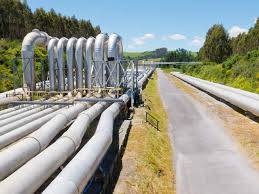The era of inexpensive Russian gas flowing into the European Union (EU) has effectively ended as Ukraine ceased the transit of Russian natural gas to Europe on January 1, 2025. This cessation followed the expiration of a five-year transit agreement between Ukraine's gas transit operator, Naftogaz, and Russia's Gazprom. Ukrainian President Volodymyr Zelensky stated that Ukraine would not allow Russia to "earn additional billions on our blood," emphasizing the nation's decision to prioritize national security over economic considerations.
**Impact on European Gas Supply**
The termination of this transit deal has significant implications for Europe's gas supply. While the EU has substantially reduced its reliance on Russian gas—down from 40% in 2021 to less than 10% in 2023—the cessation still affects several member states, particularly in Eastern Europe. Countries such as Slovakia and Austria continue to import considerable amounts of Russian gas, making them more susceptible to supply disruptions.
The European Commission has asserted that the continent's gas system is "resilient and flexible," with sufficient capacity to manage the end of transit via Ukraine. Alternative supply routes, including increased liquefied natural gas (LNG) imports from countries like Qatar and the United States, as well as piped gas from Norway, have been established to mitigate potential shortages.
**Regional Challenges**
Despite these assurances, certain regions are facing more immediate challenges. Slovakia, which has been a primary entry point for Russian gas into the EU, is particularly affected. The cessation of Russian gas transit through Ukraine has led to increased energy costs and potential supply shortages in Slovakia. In response, Slovakia has threatened to halt electricity supplies to Ukraine, a move that has escalated tensions between the two nations.
Moldova, not an EU member but closely linked to the region, is also significantly impacted. The country relies heavily on Russian gas for electricity generation, and the cessation of transit has prompted the government to implement emergency measures to ensure stable power supplies. Moldova has accused Russia of "blackmail," suggesting that the move aims to destabilize the country ahead of its 2025 general election.
**Economic Implications**
The end of the transit agreement has economic ramifications for both Ukraine and Russia. Ukraine is expected to lose approximately $800 million annually in transit fees, a significant blow to its economy. Conversely, Russia stands to lose about $5 billion in gas sales to Europe, exacerbating the financial strain on its energy sector. Gazprom, Russia's state-owned energy company, reported a $7 billion loss in 2023, its first in over two decades, largely due to decreased European gas sales.
**Future Outlook**
The cessation of Russian gas transit through Ukraine marks a pivotal moment in Europe's energy landscape. While the EU has made significant strides in diversifying its energy sources, the immediate effects on certain member states underscore the ongoing challenges in achieving energy security. The situation highlights the need for continued investment in alternative energy infrastructure and the development of resilient supply chains to navigate the evolving geopolitical and economic dynamics of the energy sector.



No comments yet
Be the first to share your thoughts!